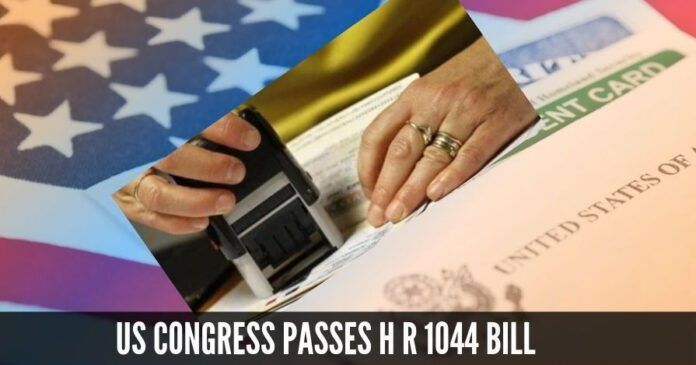
On 10th July 2019, the U.S House of Representatives passed H.R. 1044 bill, which will help High Skilled Immigrants to get the green card faster. The bill is passed; however, there are a lot of hurdles before it becomes a law[1].
Like most of the bills, this one too has its own pro and cons. The SHRM – the Society for Human Resource Management — has supported this initiative since 2011, also sent a letter to congressional leaders in the February in its support[2].
However, left have their view on the bill; they say that the current ceiling of 7% would be eliminated with this bill in place, which had created large backlogs of would-be migrants from China and India. The bill will raise the employment-based grouping to 15% in the family-based migration categories.
The bill favors majorly four groups:
- The High-tech
- It will allow a large number of Indian nationals who are now on their payrolls as H-1B temporary workers to get green cards.
- some of the unrest currently in H-1B ranks will dampen down as Indian and Chinese aliens with these visas have scraped at the length of time to the green card.
- some H-1Bs have moved on to Canada and other nations with shorter waiting periods quote some reports.
- Big City Developers
-
- With this bill, Chinese investors anxieties will be soothed who get a family-sized set of green cards for their half-million-dollar investment
- It will allow the users of the EB-5 program to continue to raise most of their money in China, as opposed to having to set up EB-5 attracting programs in other parts of the globe. The big city (notably Manhattan) real estate developers in the EB-5 program.
- Rich Chinese
-
- The EB-5 program visa seekers will be big winners since they will get their green cards much sooner.
- In many cases avoid the problem of their older children “ageing out” of the program, as they reach their 21st birthday.
- Upper Crust
-
- Those with enough money to get a college degree, either there or here (with the system tilting toward those with U.S. masters’ degrees) would, similarly, have less waiting time in the H-1B status to the issuance of green cards.
- Within the large class of Indians in the H-1B program, those favoured by this law are those also well-regarded by their employers, otherwise, they would not have filed for the green cards, so it is not all H-1Bs who are getting a break, it is those that employers favour. (There are no such complications in the EB-5 program, all EB-5 visa holders from a given nation are treated the same.)
Partial Gainers/Losers
There is a distinction in the bill between the elimination of the country of origin ceiling of 7% for the employment-based categories, and the substitution of 15% for 7% among the family-based migrants which are largely overlooked. Which means that the Indians and the Chinese the priority while the others are overlooked in the EB categories? But there is a similar partial benefit for the backlogged folk from Mexico and the Philippines. In a nutshell, Chinese, Indians and a few Vietnamese are more important than Mexican Nationals and Filipinos, and all six groups are superior to all other would-be immigrants.
Who Will Not Benefit and How?
- American Workers are the biggest losers of these programs. The H1-B strengthening program will ensure lesser citizens and green card holders are hired for reasonably well-paying Jobs.
- EB-5 investors predominantly provide finances without lien to big city developers and they get 1-2% of returns for their money. while the market rate is as high as 10%. therefore, American investors are shunned by EB-5 investors.
- Both in the employment-based and family-based migrant categories for every HR-1044 favoured potential migrant, who would get a Visa faster, there is a non-favoured potential migrant who will have to wait much longer than previous waiting period.
References:
[2] SHRM Statement on U.S. House Passage of Fairness for High-Skilled Immigrants Act July 10 2019,SHRM
- NIA confiscates Pak-harboured Khalistani terrorist Lakhbir Singh Rode’s key aide’s land in Moga - April 19, 2024
- Prime Minister Narendra Modi: A Gujju businessman who does not invest his precious time for a losing battle - April 13, 2024
- NIA arrests two accused Shazib and Taahaa in Bengaluru’s Rameshwaram Cafe blast case from Kolkata - April 12, 2024










